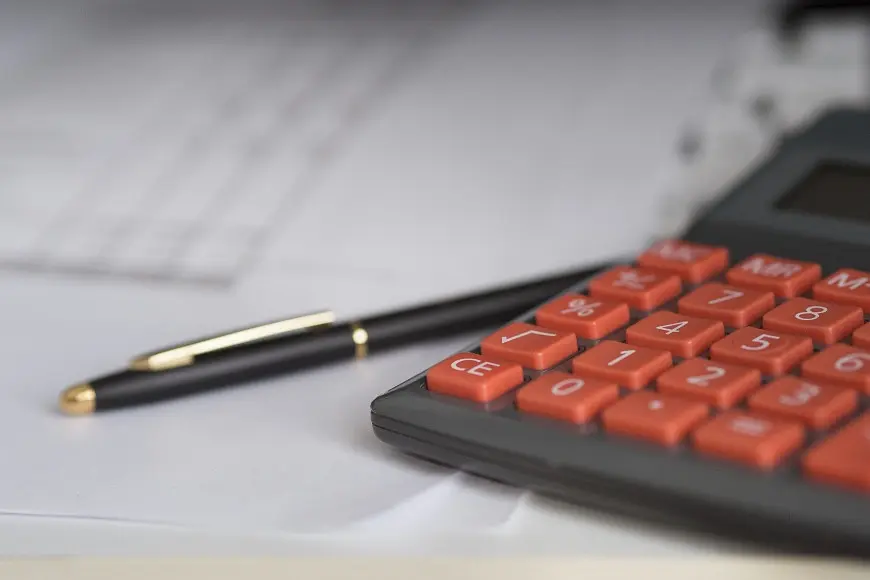HK Eyes Vacancy Tax: Insights from the UK, Canada, Australia
Listen to the blog audio:
-2.jpeg?locale=en)
Since 2019, Hong Kong has proposed the introduction of a vacancy tax aimed at addressing issues such as unoccupied units and property hoarding by developers. What exactly is the Hong Kong vacancy tax? What are the tax rates? How does this compare globally, especially with policies in the UK, Canada, Australia, and France? What are the positive impacts of implementing such a tax? This article provides a clear overview of vacancy taxes.
Background on Hong Kong's Vacancy Tax
The Hong Kong government has noticed issues with property hoarding in the primary housing market, where developers release new units in small batches, artificially creating a shortage and driving up property prices.
As a result, in 2019, the government introduced the "Rating (Amendment) Bill" which proposed a tax on vacant properties to reduce hoarding in the new home market. However, due to potential economic impacts, this proposal has not yet been officially implemented.
However, in 2024, the Hong Kong government reduced the cost of stamp duty for first-time home buyers, a positive move for both new and existing home sales. Will these changes lead to increased vacancies, or will developers hoard properties to inflate prices? These questions have sparked a new round of discussions about the vacancy tax.
Hong Kong Vacancy Tax Rates
The proposed vacancy tax requires that if a new property is not sold or does not have a rental record of at least six months within a year of obtaining its occupancy permit, an additional tax equivalent to twice the rated rental value will be levied.
Currently, the average rental yield of residential properties in Hong Kong is between 2.4% and 2.6%, making the vacancy tax approximately 5% of the property's value.
Vacant Home Units in Hong Kong
Each year, the Hong Kong Rating and Valuation Department releases data on vacant residential properties. According to the "Hong Kong Property Report 2024," the vacancy rate for private residences at the end of last year fell to 4.1%, representing 52,146 vacant units.
The Rating and Valuation Department counts units as vacant if they are not in use, including those sold but undergoing renovations, which may also be included in vacancy statistics. Additionally, units that have received occupancy permits but not completion documents or transfer consents are also considered vacant.
Impact of the Vacancy Tax in Hong Kong
Hong Kong has not yet implemented the vacancy tax on new properties, but the concept remains highly controversial.
Firstly, the method used by the Rating and Valuation Department to calculate vacant units is debated. Units still under renovation or without transfer consents are counted as vacant, which may misrepresent the issue and inflate the total number of vacant units.
Secondly, developers may adopt strategies to counter the vacancy tax, potentially rendering it ineffective. For example:
- Converting new projects into rental properties, such as serviced residences.
- Offering extended transaction periods, allowing buyers to move in early.
- Slowing down construction progress to delay the application for occupancy permits, thereby postponing tax liabilities.
Thirdly, implementing the vacancy tax could compel property owners to reconsider their holdings, pushing units onto the rental market or selling them off. This not only increases market supply but could also place downward pressure on property prices and rental rates.
Benefits of the Vacancy Tax
Implementing a vacancy tax on new properties in Hong Kong could prevent developers from artificially restricting supply to inflate prices, reduce hoarding, curb excessive property prices, and increase government tax revenue.
Vacant Property Tax in Developed Countries
Globally, several countries and cities impose a vacancy tax on residential units to push them into the rental market, increase housing supply, and curb real estate speculation.
Overview of Vacancy Tax Policies in Canada
- Federal Underused Housing Tax :
- Rate: 1% of the property's assessed value or market value, whichever is higher, applicable annually.
- Impacts: This tax primarily targets non-resident, non-Canadian owners of vacant or underused properties in Canada. The aim is to encourage the use of properties for residential purposes, either by the owner or through the rental market. The tax took effect on January 1, 2022.
- Municipal and Provincial Vacancy Taxes:
- Vancouver's Empty Homes Tax is more stringent with a rate of 3% of the assessed value as of 2021.
- Toronto's Vacant Home Tax also imposes a 1% tax on the assessed value of vacant homes.
- Impacts: These municipal taxes are designed to incentivize property owners to either occupy or rent out their properties to improve housing availability in urban areas. The revenue generated from these taxes is often used to fund affordable housing projects.
Overview of Vacancy Tax Policy in the UK
Council Tax on Empty Properties:
- Properties that are empty for two years or more may be subjected to an "empty homes premium" that significantly increases the Council Tax charge. As of now, this premium can be:
- 100% extra for homes empty for at least two years,
- 200% for those empty for five years or more, and
- 300% for properties empty for ten years or more.
- Impacts: These policies are part of broader efforts to mitigate the effects of property vacancy on communities, reduce housing shortages, and ensure optimal use of housing stock. Councils have significant autonomy in determining the rate of discount or premium applied, making the tax impact highly localized.
Overview of Vacancy Tax Policy in Australia
- Annual Vacancy Fee:
- This fee primarily targets foreign owners of residential properties in Australia.Owners must pay a vacancy fee if their property is unoccupied or not rented out for over 183 days annually.
- Fee Calculation: The fee is generally equivalent to the foreign investment application fee paid by the property owner at the time of acquiring the property. For example, if the application fee was AUD 5,500, the vacancy fee for not meeting the occupancy requirement would also be AUD 5,500.
- The vacancy tax aims to encourage property owners to rent out their properties, thereby increasing the availability of housing and helping to moderate rental prices in tight housing markets. There are significant penalties for failing to lodge the return or meet the occupancy requirements, which can be as high as AUD 52,500.
- State-Specific Taxes:
- Victoria: In addition to the federal vacancy fee, the state of Victoria imposes a Vacant Residential Land Tax on properties in inner and middle suburbs of Melbourne that are vacant for more than six months in a year. This tax is aimed at encouraging owners to either rent out their vacant properties or sell them
- Impact: This tax is aimed at encouraging property owners to rent out or sell vacant properties to increase housing availability.
LetsGetHome: Hong Kong's First On-Demand Rental Platform
Countries like the UK, Canada, and Australia demonstrate that vacancy taxes can push more properties into the rental market. In Hong Kong, many property owners, often living abroad, may lack the time or resources to manage their properties. LetsGetHome serves as an ideal solution for these owners.
LetsGetHome is the first on-demand rental platform in Hong Kong, where owners can have their properties managed by professionals based on their needs, paying a commission of just 25% of the first month's rent upon successful leasing, significantly reducing costs. Alternatively, owners can list their properties themselves for free, with no advertising or listing fees. !
